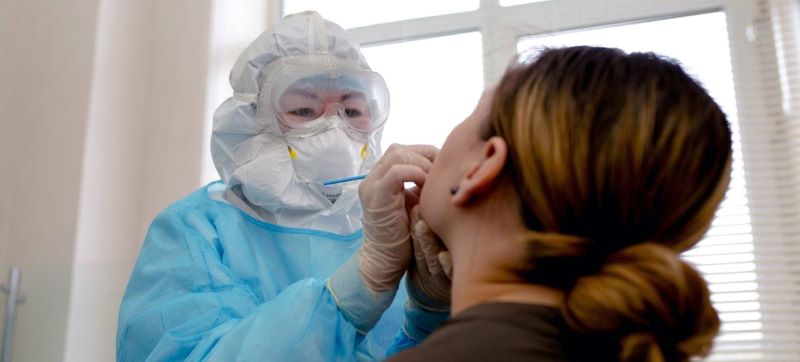 COVID19
COVID19
WHO warns COVID-19 is making worrying comeback amid summer surge
COVID-19 infections are surging worldwide - including at the Olympics - and are unlikely to decline anytime soon, the World Health Organization (WHO) warned on Tuesday.
The UN health agency is also concerned that more severe variants of the coronavirus may soon be on the horizon.
“COVID-19 is still very much with us,” and circulating in all countries, Dr. Maria Van Kerkhove of WHO told journalists in Geneva.
Testing positive
“Data from our sentinel-based surveillance system across 84 countries reports that the percent of positive tests for SARS-CoV-2 has been rising over several weeks,” she said. “Overall, test positivity is above 10 per cent, but this fluctuates per region. In Europe, percent positivity is above 20 per cent,” she added.
New waves of infection have been registered in the Americas, Europe and the western Pacific.
Wastewater surveillance suggests the circulation of SARS-CoV-2 is from two to 20 times higher than current figures suggest.
Such high infection circulation rates in the northern hemisphere’s summer months are atypical for respiratory viruses, which tend to spread mostly in cold temperatures.
“In recent months, regardless of the season, many countries have experienced surges of COVID-19, including at the Olympics where at least 40 athletes have tested positive,” Dr. Van Kerkhove said.
As the virus continues to evolve and spread, there is a growing risk of a more severe strain of the virus that could potentially evade detection systems and be unresponsive to medical intervention.
Boost vaccine awareness
While hospital admissions - including for intensive care - are still much lower than they were during the peak of the pandemic, WHO is urging governments to strengthen vaccination campaigns, making sure that the highest risk groups get shots at least once every 12 months.
“As individuals it is important to take measures to reduce risk of infection and severe disease, including ensuring that you have had a COVID-19 vaccination dose in the last 12 months, especially, if you are in an at-risk group,” stressed Dr. Van Kerkhove.
Vaccines availability has declined substantially over the last 12 to 18 months, WHO admits, because the number of producers of COVID-19 vaccines has recently decreased.
“It is very difficult for them to maintain the pace,” Dr. Van Kerkhove explained. “And certainly, they don't need to maintain the pace that they had in 2021 and 2022. But let's be very clear, there is a market for COVID-19 vaccines that are [already] out there.”
Nosing ahead
Nasal vaccines are still under development but could potentially address transmission, thereby reducing the risk of further variants, infection and severe disease.
“I am concerned”, the top WHO COVID specialist said.
“With such low coverage and with such large circulation, if we were to have a variant that would be more severe, then the susceptibility of the at-risk populations to develop severe disease is huge,” Dr. Van Kerkhove warned.
Support Our Journalism
We cannot do without you.. your contribution supports unbiased journalism
IBNS is not driven by any ism- not wokeism, not racism, not skewed secularism, not hyper right-wing or left liberal ideals, nor by any hardline religious beliefs or hyper nationalism. We want to serve you good old objective news, as they are. We do not judge or preach. We let people decide for themselves. We only try to present factual and well-sourced news.







